NVIDIA FLARE Day 2025
NVIDIA FLARE™ Day is a free online event dedicated to showcasing the cutting-edge applications of federated learning across various industries.
Event Overview
Event Overview
Federated learning is transforming how organizations build and deploy AI by enabling collaboration without sharing data. Instead of centralizing sensitive datasets, models are trained across distributed nodes, ensuring privacy, security, and compliance. NVIDIA FLARE, an open-source federated learning framework, provides the scalability, flexibility, and security features needed to accelerate this new era of decentralized AI.
Join this free online event to explore how federated learning is shaping the future of AI development, from healthcare breakthroughs to enterprise-scale deployments.
By attending this event, you will learn:
How federated learning enables AI innovation while preserving privacy and regulatory compliance across industries.
How NVIDIA FLARE simplifies building, scaling, and securing federated learning workflows for both research and production.
How organizations are applying federated learning to healthcare, finance, scientific computing, and edge AI to unlock new opportunities.
Best practices and future directions for decentralized AI collaboration powered by NVIDIA FLARE
Discover how NVIDIA FLARE is redefining AI collaboration, enabling you to harness the power of distributed data while keeping control where it belongs.
NVIDIA FLARE Day EMEA and APAC 2025
Decentralized AI is reshaping our world, and federated learning is at the heart of this transformation. Following the success of NVIDIA FLARE Day 2024, we are excited to announce two upcoming online events in September 2025:
NVIDIA FLARE Day US + EMEA: September 17
NVIDIA FLARE Day APAC: September 24 Pacific Time/September 25 Singapore Time
Both events are half-day webinars designed to connect experts in federated learning across US + EMEA and APAC time zones respectively. These online gatherings promise a unique opportunity to engage with the NVIDIA FLARE community, showcase real-world federated learning applications, and explore its transformative potential across various industries.
Companion Workshop
In addition to the main events, we’re hosting a workshop on:
NVIDIA FLARE Workshop US + EMEA: September 16, 2025
This half-day workshop offers a deep dive into NVIDIA FLARE’s product features, led by the FLARE team.
Agenda
| Time Zone (PT) | Time Zone (SGT) | Schedule |
|---|---|---|
|
7:55–8 a.m. |
4:55–5 p.m. |
Meeting Open |
|
8–8:45 a.m. |
5–5:45 p.m.. |
Introduction to Federated Learning and NVIDIA FLARE
|
|
8:45–9:30 a.m. |
5:45–6:30 p.m. |
Toward Real-Life Federated Learning With Generative AI Models: Research and Development With NVIDIA FLARE
|
|
9:30–9:40 a.m. |
6:30–6:40 p.m. |
BREAK |
|
9:40–10:15 a.m. |
6:40-7:15 p.m. |
Confidential Federated Learning With NVIDIA FLARE
|
|
10:15–11 a.m. |
7:15–8 p.m. |
NVIDIA FLARE Edge
|
|
11–11:05 a.m. |
8–8:05 p.m. |
| Time Zone (PT) | Time Zone (SGT) | Schedule | |
|---|---|---|---|
|
7:55–8 a.m. |
4:55–5 p.m. |
Meeting Open |
|
|
8–8:05 a.m. |
5–5:05 p.m. |
Opening Remarks
|
|
|
8:05–8:15 a.m. |
5:05–5:15 p.m. |
What Is NVIDIA FLARE?
|
|
|
8:15–8:35 a.m. |
5:15–5:35 p.m. |
The Cancer AI Alliance—Leveraging Federated Learning to Build Cancer AI at Scale
The Cancer AI Alliance (CAIA, https://www.canceralliance.ai/) is a public-private partnership between leading technology companies and cancer centers to the world’s most comprehensive platform to develop and deploy AI models to improve cancer care. By leveraging NVIDIA’s FLARE™ federated learning ecosystem, de-identified patient data mapped to a common data model, and streamlined governance systems, we hope to speed the development of AI models for cancer care by 10x. In this talk, we’ll discuss key issues in development of the CAIA and opportunities for AI in cancer. Learning objectives: 1. Understand the key challenges in using federated learning in a regulated space 2. Learn about the impact of AI in cancer research and care 3. Understand the challenges and advantages of public-private partnerships |
|
|
8:35–8:55 a.m. |
5:35–5:55 p.m. |
Tackling Payments Fraud Collectively—Swift’s Data Collaboration Initiative Johan Bryssinck | Swift, Head of Federated AI, AI Team Fraud and financial crime continue to rise globally, impacting citizens, corporations, and financial institutions alike. Criminal networks exploit recent growth of instant payment systems and vulnerabilities within a fragmented payments ecosystem leveraging gen AI. This highlights the urgent need for unified action. Recognizing this, policymakers, regulators, economic crime authorities, supranational organizations, and financial institutions are aligning efforts to combat this growing challenge. Join this presentation to learn how Swift, leveraging its unique position within the financial ecosystem, is driving collective action to address these threats. By leveraging NVIDIA FLARE™ and Google Confidential Spaces, Swift is leading the development of privacy-preserving solutions for secure data collaboration and artificial intelligence. Through initiatives such as fraud label sharing, enabled by advancements in privacy-enhancing technologies and federated learning, the industry is taking strides to outpace criminal innovation. This presentation will review how Swift created a sandbox with artificial data to explore the security and privacy-preserving aspects of federated learning combined with confidential computing, remote verifiable attestation, and fully homomorphic encryption. The presentation will highlight how Swift is preparing a second phase to collectively train near-real-time AI-driven anomaly detection models for transaction monitoring using real historic data from participating financial institutions. Finally, the discussion will examine how legislative progress and innovations in data-sharing frameworks—both domestically and cross-border—are supporting these collaborations, aiming to establish a more secure, robust, and resilient global payments network and potentially fostering a global inclusive economy. Johan Bryssinck | Swift, Head of Federated AI | AI Team Johan Bryssinck is the technical lead of Swift’s Federated AI and Data Collaboration program. He has more than 20 years’ experience in leadership in corporate strategy, business transformation and innovation, technology, architecture, and capacity management. At Swift, Johan is driving the adoption of artificial intelligence to enhance its products and services and innovate with customers. He oversees banking, vendor, FinTech, and research partnerships to solve common industry challenges with artificial intelligence. “Responsible AI” is central to how Swift employs the technology as a key enabler for instant and frictionless cross-border payment and security transactions. His career spans critical market infrastructures at Swift, CLS, and Euroclear. He holds a doctorate in nuclear physics from the University of Ghent, Belgium. |
|
|
8:55–9:15 a.m. |
5:55–6:15 p.m. |
Adoption of Federated Learning in Healthcare—Establishing Successful Industry-Academia Collaborations
This talk will explore the critical role of industry-academia collaborations in increasing federated learning adoption within healthcare. We’ll delve into unique challenges of multi-site studies, including data heterogeneity, clinical operations, regulatory complexities, and technical implementations. Drawing on real-world examples, we’ll provide practical suggestions for fostering successful partnerships between academic research centers and industry players. Eric Boenert is the product manager for Federated Open Science at Roche and can be found on LinkedIn at: linkedin.com/in/eric-boernert. |
|
|
9:15–9:35 a.m. |
6:15–6:35 p.m. |
Confidential Collaboration: Confidential Computing and Privacy-Enhanced Federated Training & Inference in Life Sciences and Financial Services Consortia
Confidential computing-enabled trusted execution environments (TEEs) and privacy-enhancing technologies (PETs) have become essential components in securely scaling federated learning (FL) across enterprise boundaries. As organizations increasingly recognize the value of collaborative AI development, maintaining stringent privacy, confidentiality, and security standards becomes paramount. This talk delves deeply into how TEEs and PETs—including confidential computing VMs, hardware and software attestations, homomorphic encryption, and differential privacy—can enable trustworthy federated learning across highly regulated industries such as financial services, healthcare, and life sciences. Drawing from real-world implementations, we discuss practical considerations for deploying confidential computing frameworks, securing sensitive data and model parameters in transit and at rest, and effectively integrating hardware and software attestations into enterprise FL pipelines. Learning objectives: Attendees will gain comprehensive insights into navigating the complexities of data governance, compliance, and complex technical integrations—confidential VM images, hardware attestations, IAM, KMS/secrets manager—all while maintaining usability. Through detailed case studies and implementation strategies, we highlight how these technologies address key challenges, enhance trust, and unlock new opportunities for secure collaboration in federated learning. Yuval Baror, as cofounder and CTO of Rhino Health, is helping to activate the world’s health data with federated learning and federated computing. Previously, Yuval spent over 15 years building AI-based products that solve real business needs at scale across different industries. He was an engineering leader at Google, building and scaling conversational AI products, he cofounded a startup building a predictive marketing platform, and he held R&D and leadership roles at companies like Watchfire/IBM, Sofaware/Checkpoint, and Unit 8200 of the Israeli Intelligence. |
|
|
9:35–9:55 a.m. |
6:35–6:55 p.m. |
Federated Confidential AI: Unlocking Collaborative Genomic Research
Federated learning promises to unlock multi-institutional genomic studies without centralizing sensitive DNA data—but privacy threats like gradient leakage can still expose individual genomes. This session introduces CoMPai (Confidential Multi-Party AI), a security framework created by OASYS NOW that marries NVIDIA FLARE™ with NVIDIA H100 Confidential Computing to deliver verifiable end-to-end protection. We’ll dissect how confidential enclaves shield intermediate model updates, why secure aggregation preserves accuracy better than classic homomorphic-encryption pipelines, and how CoMPai satisfies stringent GDPR and CCPA requirements while remaining scalable to terabyte-scale variant sets. A real-world case study with Erasmus MC’s GenNet—an interpretable deep-learning architecture published in Nature—demonstrates how researchers can now run cross-border population-genomics analyses without relinquishing data custody. Attendees will leave with an actionable blueprint for deploying privacy-preserving AI workflows in healthcare, drug discovery, and other regulated domains, along with benchmarks that clarify the privacy-utility trade-offs of leading PETs (confidential computing, homomorphic encryption, secure MPC). Key takeaways: • Recognize the main privacy threats in federated genomic learning and how secure aggregation mitigates them. • Compare the privacy vs. utility trade-offs of privacy-enhancing technologies through performance evaluations of confidential computing, homomorphic encryption, and secure multi-party computation. • Learn practical steps to achieve GDPR/CCPA compliance in multi-party AI pipelines. • See how FLARE + H100 Confidential Computing accelerates collaborative discoveries without compromising patient trust. Sara Okhuijsen is cofounder and CTO of OASYS NOW, a Dutch health-tech startup that builds privacy-preserving, explainable AI for clinical research and precision medicine. Trained in nanobiology at TU Delft and Erasmus MC, she leads multidisciplinary teams across AI, cybersecurity, and genomics to deliver solutions such as ELaiGIBLE, an AI assistant for patient recruitment, and CoMPai, a confidential federated-learning framework for genomic studies. Recognized by Forbes “30 Under 30 Europe” and the Women in AI Benelux awards, Sara champions patient-first, privacy-by-design innovation and speaks globally on ethical, trustworthy AI in healthcare. |
|
|
9:55–10:05 a.m. |
6:55–7:05 p.m. |
BREAK |
|
|
10:05–10:25 a.m. |
7:05–7:25 p.m. |
The FAITE Consortium: Federated Learning for Biologics Property Prediction
The Federated AI for Therapeutic Engineering (FAITE) Consortium, launched in Spring 2025, is a collaborative initiative focused on advancing federated learning for predictive modeling of biologics properties critical to therapeutic development. FAITE brings together biopharmaceutical companies committed to accelerating biologics engineering through privacy-preserving AI, ensuring sensitive data remains securely behind institutional firewalls. FAITE is powered by the Rhino Health Platform, built on the NVIDIA FLARE™ framework, and is designed to support secure, decentralized training of machine learning models across organizational boundaries. The consortium’s initial objective is to fine-tune protein language models to predict key developability attributes: high-concentration viscosity, thermal stability, and aggregation propensity—properties essential to manufacturability and clinical translation but notoriously difficult to model due to data scarcity and fragmentation. During its first year, FAITE will execute a series of federated learning campaigns to evaluate various modeling strategies, including traditional vs. contrastive loss functions, unimodal vs. multimodal input representations, and single-task vs. multi-task learning. Each partner trains locally on proprietary data while contributing to a shared model–enabling collaboration that would otherwise be infeasible. The consortium’s near-term goal is to determine whether federated learning outperforms site-specific baselines, while laying the groundwork, technically and organizationally, for future expansion. Although experimental results are forthcoming, FAITE already serves as a promising blueprint for scalable, collaborative AI in biopharma R&D. Dr. Christopher James Langmead leads Amgen’s efforts in the development and application of AI/ML-based methods for the discovery and optimization of biologics. His team at Amgen is involved with all stages of the pipeline. Prior to joining Amgen, Dr. Langmead was a tenured faculty member in the School of Computer Science at Carnegie Mellon University, where his research concerned the development of generative AI methods for the design of proteins, and algorithms for automatic scientific discovery and sequential optimization. |
|
|
10:25–10:45 a.m. |
7:25–7:45 p.m. |
Federated Data Diversity Analysis for Drug Discovery Networks Using NVIDIA FLARE
Publicly available datasets are insufficient to train high-quality AI models that meet industry requirements for drug discovery due to limited data quantity and diversity. Federated life-sciences data networks address this problem by making industrial data available for AI model training without moving that data and while protecting IP. An example is the AI Structural Biology (AISB) Network, where leading pharma companies, like AbbVie or Johnson & Johnson, make their proprietary data available for collaborative model training in a precompetitive collaboration. A key challenge in building successful data networks for collaborative model training is data harmonization and assessing dataset diversity across partners. As our contribution to NVIDIA FLARE Day 2025, we present a privacy-preserving federated clustering framework protecting each partner’s IP. Our method combines state-of-the-art clustering algorithms evaluated on drug discovery data with a secure translation into a federated setting, implemented using the NVIDIA FLARE™ framework. Our work demonstrates one of the first implementations of federated data diversity analysis for drug discovery, posing a data-centric key building block for industrial federated data networks. Key takeaways: • Learn why life sciences companies need to customize AI models to more diverse, proprietary data to improve their performance for industrial-grade research and how federated data networks enable this in a privacy-preserving manner. • Understand why data diversity analysis is important for privacy-preserving collaborative data networks to explore the chemical information space represented in pharma partners’ datasets. • Gain practical insights into the technical implementation of our federated data diversity analysis tool, built using the NVIDIA FLARE framework. Robin Röhm is cofounder and CEO of Apheris. Robin studied medicine, philosophy, and mathematics and was trained in global banking at UBS. In one of his previous start-ups, he lost multiple customers as data couldn’t be centralized due to regulatory constraints. He’s driving the vision, strategy, and culture of Apheris. |
|
|
10:45–11:05 a.m. |
7:45–8:05 p.m. |
Data Federation Mesh: Dynamic and Secure Interactive Data Processing for the Earth-2 Digital Twin, Powered by NVIDIA FLARE
The data federation mesh (DFM) represents a novel paradigm in distributed computation, extending NVIDIA FLARE™ to enable secure, interactive, and dynamic processing pipelines. As opposed to traditional microservice architectures, the DFM allows applications to directly submit fully programmable data processing pipelines for execution across a distributed federation. While NVIDIA FLARE primarily focuses on federated learning and distributed DNN training as a batch-like processing framework, the DFM introduces a new operational paradigm, transforming FLARE into a dynamic processing platform. This is particularly beneficial for interactive applications and real-time digital twins, such as NVIDIA’s Earth-2, where immediate responses to user interactions paired with distributed federated computation are essential. DFM’s core innovation centers on its optimizing compiler, which is instrumental in bringing compute operations closer to the data, thereby reducing latency, minimizing resource overhead, and lowering bandwidth costs. Extending FLARE’s existing code distribution mechanisms—pre-deploying controllers/executors, which are static, and runtime transmission of Python scripts, which may raise security concerns—the DFM implements a secure, fine-grained control model: Each site administrator precisely configures site capabilities in terms of pre-deployed, scrutinize-able “adapters”—reusable Python classes that implement specific functionalities. At runtime, dynamic pipelines, expressed as JSON graphs referencing the adapters, are translated into a simple intermediate representation (IR). The DFM optimizes this IR for data and compute locality across the federation, while ensuring that no raw Python code enters the secure site boundary, and only configured site capabilities are exposed. Additionally, the DFM introduces a “discovery” process, enabling applications to dynamically query the federation for services and data sources provided by federation sites. For the NVIDIA FLARE community, DFM promises new interactive use cases beyond single-job processing. Building on FLARE’s core competencies for secure distributed computation, the DFM evolves FLARE’s established federated learning application domain into data processing pipelines for interactive dynamic use cases. Dr. Christoph Angerer is a senior manager in the HPC Developer Technology group at NVIDIA, leading a team working on data processing in the cloud for scientific digital twins. Before joining NVIDIA, Christoph was researching energy-efficient hardware accelerators at IBM Research in Switzerland. He received his Ph.D. from the ETH Zurich, Switzerland, and a master’s degree from the TU Munich, Germany. |
|
|
11:05–11:25 a.m. |
8:05–8:25 p.m. |
VehicleVision: The First Federated Learning System Ever Deployed in Smart Vehicles Zülal Tannur | NeuroVision AI Tech, Founder and CEO VehicleVision is the world’s first federated learning system ever deployed in smart vehicles. Designed to run fully on the edge, it delivers real-time artificial vision for all passengers—not just the driver—while ensuring that no personal data leaves the vehicle. This talk will discuss how NeuroVision AI Tech designed and deployed a privacy-first, inclusive AI system that transforms vehicles into intelligent, collaborative learning nodes. With a special focus on passengers who are blind and visually impaired, VehicleVision provides contextual audio descriptions of both interior and exterior scenes—powered entirely by on-device AI. But VehicleVision isn’t just about visual perception. It’s also the first system to combine vision-language models (VLMs) with federated learning in a smart vehicle environment. This enables our AI to process not only images, but also generate and refine descriptive language, all while training across distributed devices without compromising privacy. By fusing multimodal intelligence with federated architecture, VehicleVision represents a new class of real-time, edge-first, human-centered artificial vision systems. We’ll walk through how we transitioned from a cloud-dependent pipeline to an edge-native infrastructure, and how this shift is enabling inclusive, secure, and scalable mobility intelligence. Key takeaways: • How to build real-time AI systems in privacy-sensitive environments using federated learning • How vision-language models (VLMs) can be trained collaboratively across edge devices • What it takes to build a scalable, human-first AI infrastructure in smart mobility Zülal Tannur is the founder and chief executive officer of NeuroVision AI Tech, the company behind the world’s first federated learning–powered vision system for smart vehicles. As both CEO and technology leader, she leads the development of real-time, privacy-first, and inclusive artificial vision systems that operate entirely on the edge—transforming vehicles into intelligent, decentralized learning environments. The flagship solution of NeuroVision AI Tech, VehicleVision, is deployed in thousands of smart vehicles and integrates vision-language models (VLMs) with federated learning, enabling accessible perception without compromising data privacy. Under her leadership, NeuroVision AI Tech has partnered with NVIDIA, Microsoft, and top-tier automotive OEMs to scale edge-first AI infrastructure across global mobility systems. Zülal is a globally awarded innovator. She’s the winner of the Microsoft Imagine Cup World Championship, recipient of the Microsoft Women Power Award (EMEA), and has been recognized by Google and JCI as one of the most influential young tech leaders worldwide. She’s also the first blind woman globally trained as a Microsoft Technology Ambassador. Zülal’s academic background is in neuroscience and cognitive science at Arizona State University. Her work bridges biological vision and machine intelligence to build the future of perception—one that’s inclusive, decentralized, and human-first. |
|
|
11:25–11:45 a.m. |
8:25–8:45 p.m. |
Agentic AI Meets Secured Federated Workloads
In this talk, we’ll explore how NVIDIA FLARE™ powers secure federated analytics by combining it with additional privacy-enhancing technologies (PETs) such as trusted execution environments (TEEs) and differential privacy. We’ll demonstrate how Duality integrates NVIDIA FLARE with these PETs to enable collaborative, cross-border analysis while preserving data confidentiality. The session will also showcase how agentic AI—powered by LLMs—can orchestrate and automate distributed workloads’ securely on top of NVIDIA FLARE, opening new opportunities for privacy-preserving research at scale. Adi Hirschstein is the vice president of product at Duality Technologies, where he leads the development of privacy-preserving AI solutions that enable secure data collaboration. With over 20 years of experience in product leadership across cloud-native platforms and data security, Adi has a proven track record of taking complex technologies from concept to market. Prior to Duality, he served as VP of product at Iguazio, driving innovation in real-time data and machine learning applications. |
|
|
11:45 a.m.–12:05 p.m. |
8:45–9:05 p.m. |
Using NVFlare for Federated Training of Large Language Models Across the DOE Labs
In the pursuit of advancing scientific research while maintaining data privacy, this project aims to leverage federated learning techniques to train a shared large language model (LLM) on internal scientific documents from Sandia, Lawrence Livermore, and Los Alamos National Laboratories. Given the restrictions on sharing documents between these labs, we employ swarm learning as a robust solution to collaboratively train a model capable of querying scientific content without direct access to the underlying documents. Utilizing NVIDIA FLARE™, we have successfully trained Llama models with billions of parameters, demonstrating the framework’s efficacy in handling complex training tasks across distributed environments. Our approach features a modular training backend, allowing each laboratory to utilize their preferred software and methodologies, thereby fostering a flexible and efficient training process. The training workflow is orchestrated through NVIDIA FLARE clients, utilizing Slurm or Flux job scheduling systems to efficiently dispatch tasks across the participating labs. Furthermore, the entire workflow is containerized, ensuring seamless deployment on internal machines while maintaining compliance with security protocols. This presentation will outline the methodologies employed, the challenges encountered, and the successes achieved in federated LLM training across the DOE labs. By showcasing the potential of NVIDIA FLARE in this context, we aim to highlight the transformative capabilities of federated learning in enhancing collaborative research while safeguarding sensitive information. Max Carlson is a postdoc at Sandia National Labs with a Ph.D. in computer science from the University of Utah. His background is in high-performance computing, performance portability, and automated workflow management. Chris Siefert earned a Ph.D. in computer science with the computational science and engineering option from the University of Illinois at Urbana-Champaign, and is currently a principal R&D staff member in the Center for Computing Research at Sandia National Laboratories. He’s the model training lead for Sandia’s federated model training project. His research interests include high-performance computing, computational electromagnetics, and the application of generative AI models to high-performance computing codes and scientific data. |
|
|
12:05-12:25 p.m. |
9:05–9:25 p.m. |
Democratizing Access to AI/ML Drug Discovery Models for Biotechs – using Federated Learning within Lilly Catalyze 360
Lilly Catalyze360 is a comprehensive approach to enabling the early-stage biotech ecosystem, agnostic of the therapeutic area. Through Lilly Catalyze360, biotechs have unique access to Lilly’s expertise, knowledge and capabilities. As part of this platform, Catalyze360 is exploring new ways to use Federated Learning to democratize access to AI/ML drug discovery models for biotechs. Gregg Spivey, as AI/ML Business Strategy Lead for Lilly’s Catalyze360 program, is focusing on how Lilly can best collaborate with a wide range of partners to combine their resources and expertise to advance the next generation of AI/ML models and tools to help improve drug discovery. Prior to Lilly, he operated in cross-functional teams delivering impactful ML/AI powered solutions across Drug Discovery / Biotech, Digital Health, and Tech; at varying scales from startups up to Apple iOS feature releases. |
|
|
12:25–12:30 p.m. |
9:25–9:30 p.m. |
Closing Remarks
|
| Time Zone (PT)
2025-09-24 |
Time Zone (SGT)
2025-09-25 |
Schedule |
|---|---|---|
|
4:55–5 p.m. |
7:55–8 a.m. |
Meeting Open |
|
5–5:30 p.m. |
8–8:30 a.m. |
Keynote: Challenges and Opportunities for Federated Learning in the Age of Foundation Models
The rise of large foundation models underscores the importance and relevance of federated learning as a key research direction. As LLMs become the mainstream in machine learning development, the research focus is shifting from model architecture design to addressing challenges related to privacy preservation and distributed learning in order to efficiently leverage privately owned valuable but sensitive data. Advances in federated learning as an infrastructure for collaborative foundation model training/fine-tuning has the potential to unlock the value of large models by enabling efficient and scalable training while safeguarding sensitive data. The long-term healthy development of this field requires continuously attracting high-quality data owners to collaboratively build models and share the benefits. In this talk, Dr. Han Yu will share some of the efforts in this emerging area from the Trustworthy Federated Ubiquitous Learning (TrustFUL) Lab at Nanyang Technological University, Singapore. These include methods for quantifying participant contributions in federated settings, ensuring fairness among diverse participants, establishing multi-agent automated data auctions to support federated training, as well as collaborative training of foundation models in federated settings. Dr. Han Yu is a tenured associate professor in the College of Computing and Data Science (CCDS), Nanyang Technological University (NTU), Singapore. Between 2018 and 2024, he was a Nanyang Assistant Professor (NAP) in CCDS, NTU. He obtained his Ph.D. from the School of Computer Science and Engineering, NTU in 2014. His work focuses on trustworthy federated learning. He’s published over 300 research papers in leading international conferences and journals. In 2021, he cofounded the Trustworthy Federated Ubiquitous Learning (TrustFUL) Research Lab (https://trustful.federated-learning.org/). He’s the IJCAI Sponsorship Officer General, and vice chair of the IEEE Computational Intelligence Society (CIS) Standards Committee. For his continued contributions to the field of trustworthy AI and real-world impact in society, he’s been identified as one of the World’s Top 2% Scientists in AI, and selected as one of the JCI Ten Outstanding Young Persons (TOYP) of Singapore. |
|
5:30–5:50 p.m. |
8:30–8:50 a.m. |
Transforming Cancer Data Sharing for AI-Driven Innovation
Artificial intelligence (AI) and machine learning (ML) are reshaping oncology, offering powerful tools for precision care. However, widespread adoption remains limited due to regulatory uncertainty, interoperability challenges, and integration gaps in clinical workflows. Federated learning offers a promising solution by enabling secure data sharing and model training across institutions without transferring sensitive patient data. Emerging use cases, such as federated validation, enhance the reliability and generalizability of AI models across diverse settings. Recent work with the National Cancer Institute (NCI) has established one of the first national federated learning networks for cancer research to demonstrate scalable, privacy-preserving collaboration. In parallel, a collaboration with NVIDIA has focused on developing a risk-based framework—based on insights from the NCI initiative—to identify and remove key barriers to AI adoption, including governance, compliance, and security concerns. Strategic focus must be placed on supporting AI maturity through standardized evaluation, improved interoperability, and alignment with clinical decision-making. With targeted action across these domains, AI can evolve from pilot implementation to sustainable integration, unlocking its full potential in precision oncology and broader healthcare applications. Dr. Shannon McWeeney is a professor and chief data officer at the OHSU Knight Cancer Institute, where she leads data strategy and innovation at the intersection of computer science, biostatistics, and medicine. Her work on novel computational methods for prioritization and visualization has driven advances in precision oncology and beyond, with broad impact across complex traits. A leader in data sharing and ethical AI, Dr. McWeeney has contributed to national initiatives including the NCI Blue Ribbon Panel and Biden Cancer Initiative. She directs medical bioinformatics for the OHSU Knight Precision Oncology Program, overseeing the translation of algorithms from research into clinical use. She’s also MPI for OHSU’s NCI ARTNet Center as well as the NIH Bridge2AI AI-READi project, where she’s developing tools to generate FAIR, CARE-aligned datasets for machine learning at scale. |
|
5:50–6:10 p.m. |
8:50–9:10 a.m. |
Federated Learning for Engine Aftertreatment
Thermal overshoots in diesel aftertreatment systems—particularly at the diesel oxidation catalyst (DOC) outlet—pose a critical risk to system durability. These overshoots are often triggered by regeneration fueling events that respond reactively rather than preemptively to rising temperatures. To address this challenge, we’ve developed a predictive control approach that leverages a neural network (NN) model trained to predict DOC outlet temperature overshoot events in advance. This model enables the powertrain controller to modulate regeneration fueling proactively, thereby reducing the frequency and severity of thermal stress on the aftertreatment components. To improve model accuracy and generalization across diverse operating conditions, we implemented federated learning (FL) across a distributed fleet of vehicles with NVIDIA FLARE™. This privacy-preserving training approach allows each vehicle to contribute to model improvement without sharing raw data, ensuring data confidentiality while enhancing robustness. Vishnu Pandi Chellapandi (Senior Member, IEEE) is currently a senior technical specialist with the Connected and Intelligent Systems Group at Cummins Research and Technology, Columbus, IN, USA. He received his B.E. degree from the College of Engineering, Guindy, Anna University, Chennai, India; his M.S. degree from the University of Michigan, Ann Arbor, MI, USA; and his Ph.D. degree from Purdue University, West Lafayette, IN, USA. His research interests include federated learning, connected vehicles, distributed optimization, and intelligent systems. Dr. Chellapandi serves as an associate editor for the IEEE Internet of Things Journal and the SAE International Journal of Connected and Automated Vehicles. |
|
6:10–6:30 p.m. |
9:10–9:30 a.m. |
Taiwan’s National Strategy for External Clinical AI Validation and Federated Learning Deployment
This talk presents a practical playbook for federated learning (FL) in hospitals. Rapidly onboard multiple sites while keeping data in place and meeting residency/compliance requirements. We cover the end-to-end pipeline: on-prem feature standardization, configurable client training, server-side aggregation (FedAvg and Byzantine-robust variants), when to enable secure aggregation and differential privacy, and multi-site evaluation across AUROC/AUPRC. With common use cases (vital-sign risk prediction, imaging triage), we show how existing single-site models plug into an FL workflow to improve portability and generalization. We conclude with a concept-stage roadmap for a national coordination service that provides governance and audit and evolves into reusable infrastructure for external validation. Anticipated benefits include shorter validation cycles, reduced compliance/security overhead, higher model trust, and faster go/no-go decisions—laying the technical and governance foundations for scaled clinical AI deployment in Taiwan. Prof. Dr. Chien-Chang Lee ( https://www.mohw.gov.tw/cp-3779-79084-2.html) assumed the role of chief information officer (CIO) for the Taiwan Ministry of Health and Welfare (MOHW) on January 16, 2024. Prior to this appointment, he served as professor of emergency medicine and deputy director of the Center of Intelligent Healthcare at National Taiwan University (NTU) Hospital. Dr. Lee earned his MD from NTU, completed residency training in emergency medicine, and holds a doctor of science (ScD) in epidemiology from Harvard University. His expertise spans translational diagnostic medicine, big data epidemiology, computational biology, evidence-based medicine, and clinical AI. Notably, his research on fluoroquinolone antibiotics and aortic dissection prompted U.S. FDA regulatory action and global prescription changes. As CIO, Dr. Lee oversees the information technology (IT) systems and security activities for a workforce exceeding 5,300 individuals. He spearheads the development and implementation of IT policies, manages critical projects, and strategically guides IT investments, aligning with the MOHW’s mission to advance the health and well-being of the Taiwanese population. He also manages the department’s substantial health IT budget. Before his CIO role, Dr. Lee served as deputy director of the Center of Intelligent Healthcare at NTU since March 2020, providing strategic direction for AI integration into clinical settings, and offering expertise in policy development, budgeting, innovation, and risk management. Recognized among the world’s top 2% of scientists by Stanford University (2021–2024), he’s published over 250 papers with 13,000+ citations. He’s received numerous accolades, including the Gold Edison Award in 2024 and again in 2025. Beyond his administrative leadership at the Ministry of Health and Welfare, Dr. Lee continues to serve as a staff physician in the Emergency Department at National Taiwan University Hospital, a clinical professor at the National Taiwan University College of Medicine, and a professor at the College of Electrical Engineering and Computer Science, National Taiwan University. He also leads a dynamic biomedical data science lab, and his groundbreaking research on antibiotic safety, sepsis biomarkers, and AI-driven risk prediction has influenced both clinical practice and public health policy. Po-Chun Liao is chief engineer at the Industrial Technology Research Institute (ITRI) and chief engineer for federated learning at Taiwan’s Ministry of Health and Welfare (MOHW). He specializes in privacy-preserving clinical AI, with a focus on cross-hospital federated learning (FL) for in-hospital cardiac arrest prediction. His work includes building comprehensive evaluation pipelines covering AUROC/AUPRC, calibration, subgroup fairness, distribution shift, and robustness. Liao has also developed LLM- and RAG-based dashboards for e-cigarette website detection and IDseq report interpretation. From 2021 to 2024, he previously worked for Prof. Chien-Chang Lee’s team at National Taiwan University Hospital, where their joint research achievements earned two Gold Edison Awards—HoloXmed, which won the Gold Award in “Cutting-Edge Tools” under the Engineering and Robotics category (2024), and DeepArrest, which received the Gold Award in Cardiovascular Health Diagnostics and Monitoring in the Health Medical & Biotech category (2025). Liao holds training in statistics and biostatistics from National Cheng Kung University and National Taiwan University. |
|
6:30–6:40 p.m. |
9:30–9:40 a.m. |
BREAK |
|
6:40–7 p.m. |
9:40–10 a.m. |
Harnessing Distributed Intelligence With Privacy Preservation: Federated Learning for the Early Detection of Breast and Lung Cancer
Early detection of breast and lung cancers is critical for improving patient outcomes, yet developing robust AI models to support screening workflows remains challenging due to institutional data silos and stringent patient privacy regulations. Federated learning (FL) presents a scalable solution, enabling model development across sites without requiring data sharing. Leveraging the NVIDIA FLARE™ SDK, we’ve designed and validated a practical FL infrastructure focused on radiology imaging data, targeting early cancer detection. Our initial FL experiments used two cohorts from the National Lung Cancer Screening Trial (NLST), followed by expansion to a third site (Moffitt), validating multi-site FL training within a controlled setting. To demonstrate operational feasibility in real-world clinical collaborations, we conducted proof-of-concept experiments using CIFAR-10 between Moffitt and two academic partners: the University of California, Los Angeles (UCLA) and the University of Washington (UW). These deployments confirmed the stability, scalability, and security of NVIDIA FLARE for distributed model training across institutional firewalls. Building on this infrastructure, two real-world FL collaborations are progressing: 1) lung cancer detection using low-dose CT scans between UCLA and Moffitt, and 2) breast cancer screening using mammography between UW and Moffitt. Both initiatives are embedded within the National Cancer Institute’s Early Detection Research Network (EDRN), positioning FL as a central enabler of multi-institutional AI model development. Our work focuses on establishing a reproducible, privacy-preserving framework for FL in oncology, with ongoing efforts to scale this FL network to additional EDRN partners. This presentation will share insights from our development, lessons from cross-institutional deployments, and future directions for federated AI applications in cancer screening. Learning objectives: • Understand practical considerations in deploying FL for clinical imaging applications using NVIDIA FLARE • Learn about cross-institutional technical validations and real-world collaborations in cancer detection • Explore a scalable FL infrastructure designed for regulatory and privacy compliance in healthcare AI Nikolas Koutsoubis is a second-year electrical engineering Ph.D. student at USF/Moffitt Cancer Center working on AI/ML for cancer research. His areas of research are on multimodal machine learning for improving patient outcomes in multiple forms of cancer and enabling multi-institutional collaborations by establishing federated learning infrastructures at Moffitt, primarily using NVIDIA FLARE. |
|
7–7:20 p.m. |
10–10:20 a.m. |
Distributed Battery Range Estimation of Electric Vehicle via Personalized Federated Learning
Electric vehicles (EVs) are great for reducing emissions, but “range anxiety”—the worry that an EV’s battery won’t last—still deters many drivers. Smarter range prediction could help, but training an AI model by sending all that car data to the cloud isn’t practical; it raises privacy concerns and needs costly infrastructure. Toyota’s demo tackles this challenge with a privacy-friendly approach called federated learning. Imagine a mini city where cars learn together. Toyota built a mini fleet of two remote-controlled (RC) cars and eight simulated cars (using the SUMO traffic model) to mimic a city of EVs. Each RC car has an onboard NVIDIA® Jetson Nano™ computer running a local AI model for battery range prediction. Using federated learning, each car trains on its own data and shares only model updates—not raw data—with a central server, while NVIDIA’s FLARE™ software coordinates the training across all devices with a real-time dashboard for monitoring. After training a shared global model, each car fine-tunes it on its own data to personalize the predictions—boosting accuracy in the process. And since data stays on the car, privacy is protected and communication costs remain low. The team’s federated solution even used about 10x less network and computing resources than a typical cloud approach. The takeaway for attendees: Federated learning isn’t just theory—it’s a practical, safe, and cost-effective way to improve EV range estimates. Imagine every EV on the road learning from each other to refine their range predictions. That could give drivers more confidence to go electric and reduce strain on charging infrastructure. This approach also paves the way for broader use of federated learning in transportation, offering a glimpse into the future of smart mobility. Johnny Wang is the principal researcher at AI/ML infrastructure and data at the Lab of Toyota InfoTechnology Center. Duy Phuong Nguyen is a Ph.D. student in computer science at Iowa State University, where his research focuses on federated learning, model compression, and distributed computing. His technical expertise spans deep learning, multimodal learning, and fine-tuning large language models. |
|
7:20–7:40 p.m. |
10:20–10:40 a.m. |
Holoscan Federated Analytics: Enabling Privacy-Preserving Edge AI for Healthcare Operations
In modern healthcare environments, real-time AI applications deployed across distributed edge systems—such as the NVIDIA Holoscan platform—generate valuable operational and clinical data. However, aggregating this data centrally for analysis often raises challenges related to data privacy, security, and bandwidth. Holoscan Federated Analytics is a solution designed to address these challenges by enabling decentralized analytics across fleets of Holoscan-powered devices. Built on NVIDIA FLARE™ (Federated Learning Application Runtime Environment), Holoscan Federated Analytics allows hospitals, medical device manufacturers, and operational teams to capture, process, and analyze key metrics—without ever moving sensitive data off-site. Whether it’s optimizing software and hardware resource usage, informing next-gen medical device design, validating new features from real-world clinical use, or monitoring device health and efficiency, this framework brings secure, scalable insights to the edge. This talk will explore how Holoscan Federated Analytics empowers stakeholders—ranging from hospital CIOs and system administrators to medical device engineers—to make data-driven decisions, all while preserving patient privacy and ensuring compliance with healthcare regulations. Use cases, architectural insights, and deployment strategies will be discussed to illustrate how this solution transforms edge analytics in healthcare and beyond. Rahul Choudhury is a senior software engineering manager at NVIDIA, where he leads the Holoscan SDK and MONAI Deploy teams. His work centers on building real-time AI platforms that power edge-to-cloud applications across domains including healthcare, life sciences, industrial automation, and robotics. With a deep interest in innovation at the intersection of AI, real-time systems, and application design, Rahul focuses on enabling developers to create scalable, high-performance solutions for complex, data-driven workflows. Previously, he led the Clara Application team at NVIDIA, developing solutions to extract clinical meaning from 3D medical images. Rahul holds an M.S. in biomedical informatics from Stanford University, California. |
|
7:40–8 p.m. |
10:40–11 a.m. |
Federated Learning in the Enterprise: How to Run FL Across Different Enterprises and Live to Tell the Tale
Federated learning (FL) has emerged as an approach for collaborative AI model training while preserving data security and privacy across multiple organizations. Yet, deploying federated learning across distinct enterprises brings unique challenges far beyond academic proofs-of-concept—ranging from privacy/security and IP protection, setting up collaboration and governance, infrastructure provisioning, supporting development and deployment cycles, and integrating with heterogeneous data sources and data formats. This talk shares real-world insights and practical lessons learned from deploying federated learning systems at enterprise scale, spanning industries such as healthcare, pharmaceuticals, and financial services. We explore critical solutions such as provisioning federated clients in heterogeneous multi-cloud and edge IT infrastructures, connecting to data lake/data warehouse, setting up network proxy and firewall, configuring user permissions, and creating a safe collaboration project space. In addition, we’ll demonstrate harmonizing and preprocessing data across diverse organizational boundaries and managing AI training experiments, evaluations, and model deployments. Furthermore, using real-life case studies, we highlight effective strategies for overcoming technical barriers, managing stakeholder alignment, ensuring robust security, and operationalizing privacy-preserving technologies. Learning objectives: Actionable insights on setting realistic expectations and step-by-step implementation recipe in complex multi-organizational settings, covering five workflows: 1. Provisioning of clients and data access 2. Collaboration and governance setup 3. Data processing 4. Federated training 5. Federated deployment Adrish Sannyasi is an accomplished AI solutions leader with deep expertise in cloud data, AI platforms, and healthcare and life sciences AI applications. He has effectively used innovative technologies to solve industry challenges and deliver business growth in healthcare and AI. Currently, he leads customer experience technical functions at Rhino, a federated computing platform company. During his time at Google Cloud, 2018–2023, he played a leadership role, as a principal architect in strategic accounts, helping customers with complex data and AI problems. Further, he led the development and go-to-market activities of pivotal healthcare solutions like the Healthcare Data Engine, healthcare language models, medical imaging AI, multi-omics and target discovery, and claims prior-auth automation. |
|
8–8:20 p.m. |
11–11:20 a.m. |
From Data Silos to Revenue Streams: Federated Learning and Incentivized AI for Healthcare With NVIDIA FLARE
Hospitals hold some of the most valuable clinical data in the world, but two persistent challenges block its potential: They can’t share data due to privacy regulations, and they receive no compensation for enabling research or innovation. At Partex, we’re addressing both issues through a real-world data (RWD) foundation model, built using federated learning and powered by NVIDIA FLARE™. This approach allows us to train advanced AI models across distributed hospital data without moving or exposing any sensitive information—ensuring full compliance and preserving trust. But privacy is only part of the equation. Hospitals need a reason to participate. That’s why we’ve implemented an attribution-based revenue model that rewards institutions both for the volume of data contributed and the impact that data has on real-world AI outputs. Each time our foundation model is queried—whether for biomarker discovery, patient stratification, or trial optimization—we trace which datasets contributed to the response and compensate the relevant providers accordingly. This system transforms data from a passive asset into an active, recurring revenue stream for hospitals—creating a win-win model for healthcare systems, researchers, and patients alike. Key takeaways: • Learn how NVIDIA FLARE enables privacy-preserving training across hospitals. • Discover how Partex’s per-query attribution model incentivizes hospitals for real-world data impact. • Explore how federated AI can drive ethical commercialization of medical insights at a global scale. Gaurav Tripathi is a serial entrepreneur, cofounder, and Group CTO at Innoplexus. He’s on the boards of multiple companies and not-for-profits. He studied at IIT Bombay and has 19+ years of experience across multiple startups, working in video, big data, blockchain, and AI. As CTO, he led the team to build an impressive IP portfolio of 175+ patents (US/EU) in areas around AI, out of which 45 have him as an inventor. Gaurav’s exemplary leadership and innovative efforts have earned him numerous accolades, including the Warrior of Change Award for his impactful work during COVID-19, the Business World Disrupt 40 Under 40 Award, the Business World Healthcare Excellence Award, and the Global Spin Award for Digital Transformation Leader of the Year (CIO/CTO). |
|
8:20–9:10 p.m. |
11:20–12:10 a.m. |
Lightning Talks (5 min. each)
Bridging Annotation Gaps in Federated Learning for Medical Image Segmentation Through Conditional Distillation
Trustless Federated Learning: A New Infrastructure for Scalable Collaboration
A Responsible, Privacy-Preserving AI Framework for Wearable Healthcare and Stress Monitoring
Running Federated Learning on Jetson Devices With NVIDIA FLARE
Lightning talks from summer of code submissions Embracing Diversity in Federated Learning: A Framework for Hetero-Client Collaboration Huang Suizhi | Nanyang Technological University , Ph.D. student Introduction to Adaptive Quantization Yuanyuan Chen | Nanyang Technological University, Ph.D. student |
|
9:10–9:15 p.m. |
12:10–12:15 p.m. |
Chester Chen | NVIDIA, Senior product and engineering manager |
NVIDIA FLARE Day Speakers

Jeff Leek
Fred Hutchinson Cancer Center, Chief data officer and vice president; and J. Orin Edson Foundation, chair of biostatistics

Johan Bryssinck
Swift, Head of Federated AI, AI Team

Christopher James Langmead
Amgen, Scientific Executive Director

Eric Boenert
Roche, Product Manager for Federated Open Science

Han Yu
Nanyang Technological University (NTU), Associate Professor
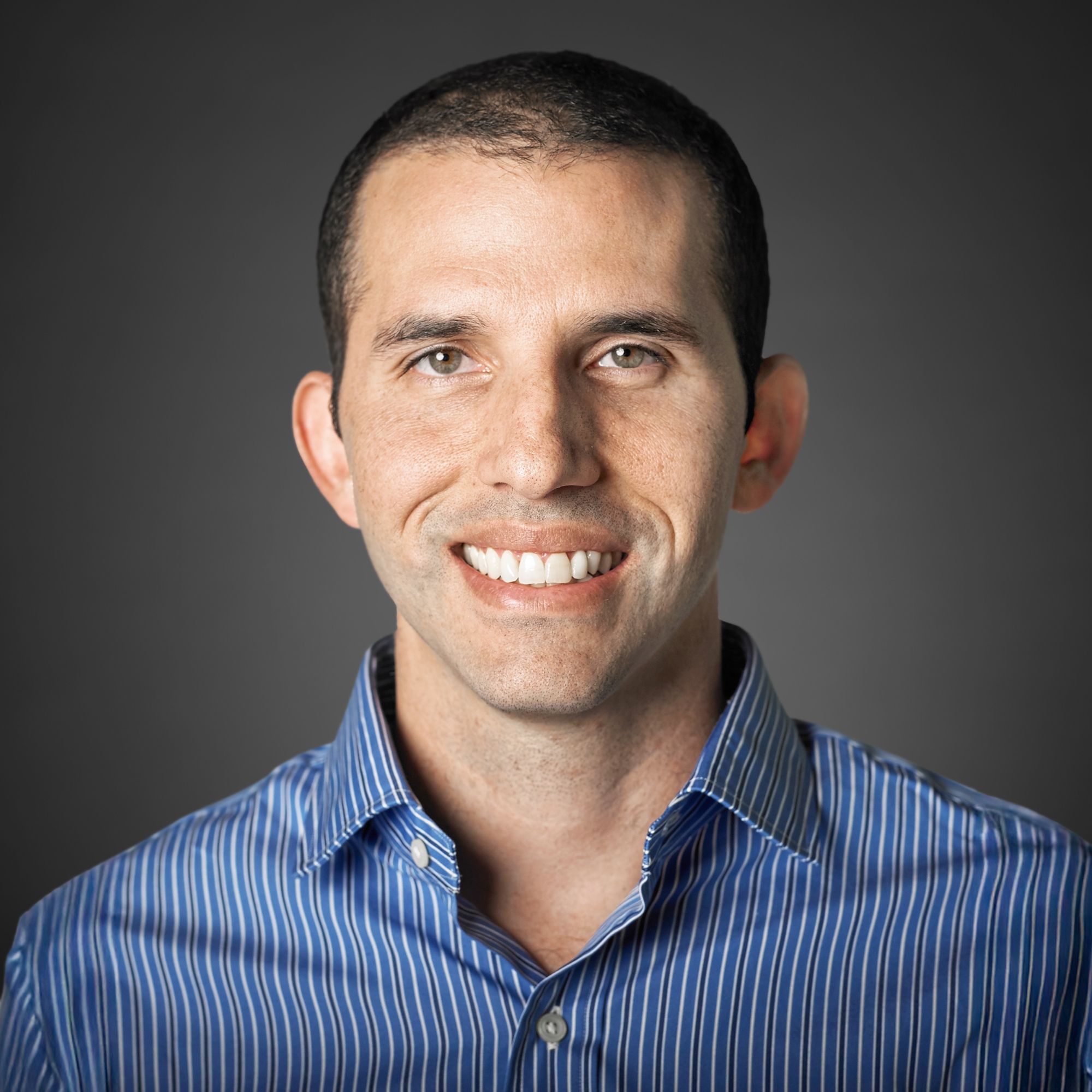
Yuval Baror
Rhino FCP, Cofounder and CTO

Robin Rohm
Apheris, CEO & Cofounder

Adi Hirschstein
Duality Technologies, Vice President of Product
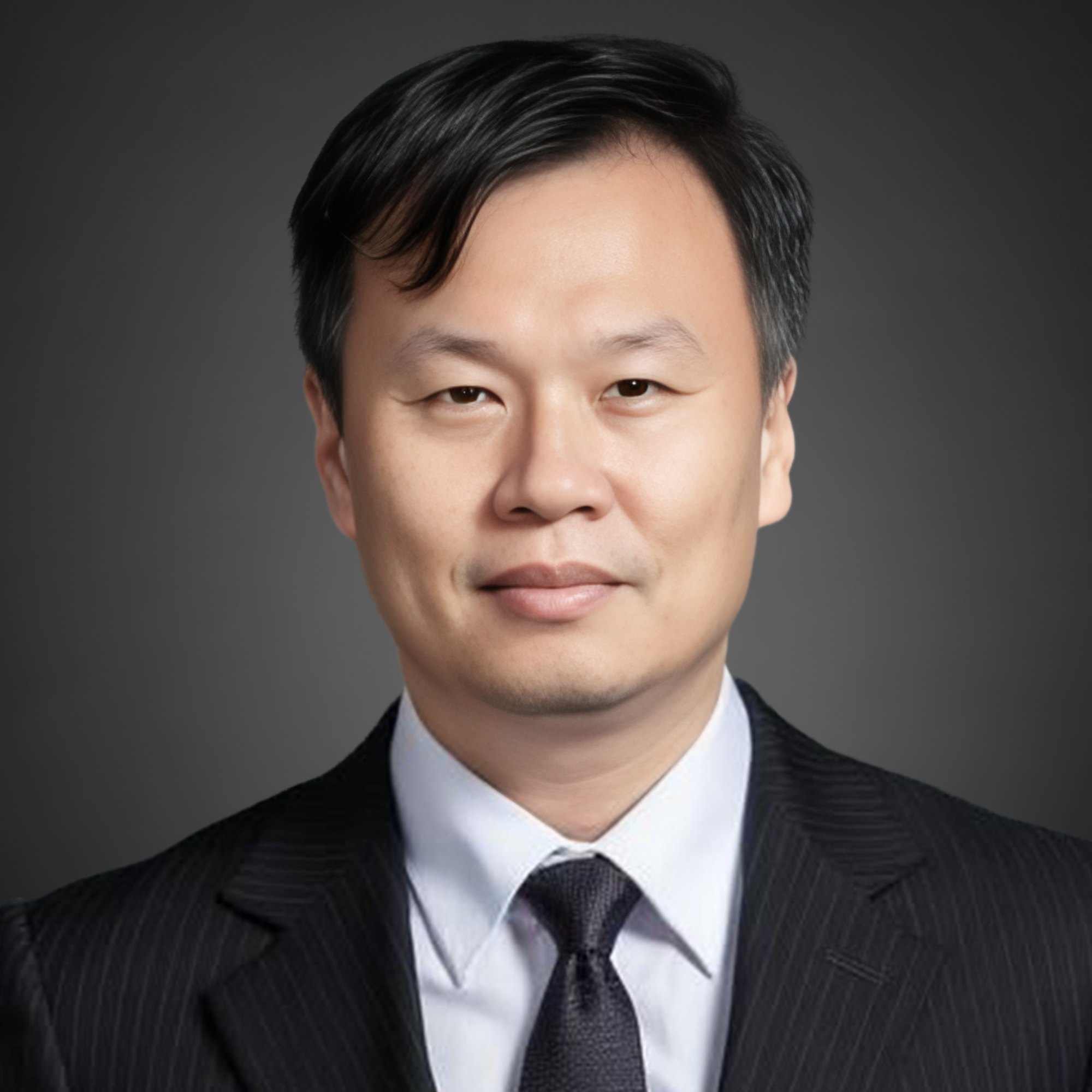
Prof. Dr. Chien-Chang Lee, MD, ScD
Ministry of Health and Welfare (MOHW), Taiwan, Chief Information Officer andNational Taiwan University Professor, Staff Physician

Gregg Spivey
Eli Lilly & Company, Senior Director, AI/ML Business Strategy Lead

Chester Chen
NVIDIA, Senior Product and Engineering Manager, FLARE
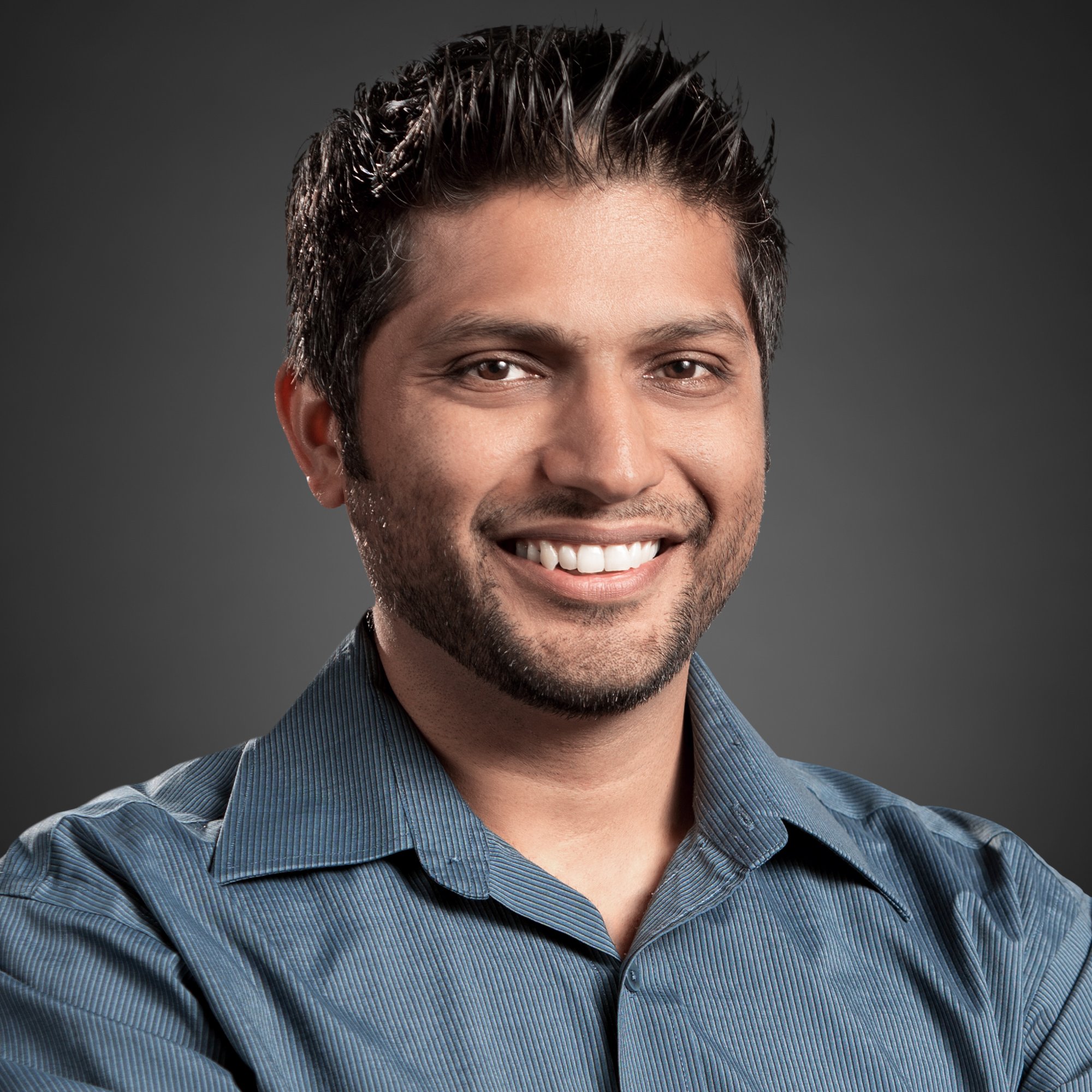
Ankit Patel
NVIDIA, Senior Director Developer Marketing

Yan Cheng
NVIDIA, Director of Software Engineering, FLARE Chief Architect

Rahul Choudhury
NVIDIA, Senior Software Engineering Manager, Holoscan

Ziyue Xu
NVIDIA, Senior Data Scientist
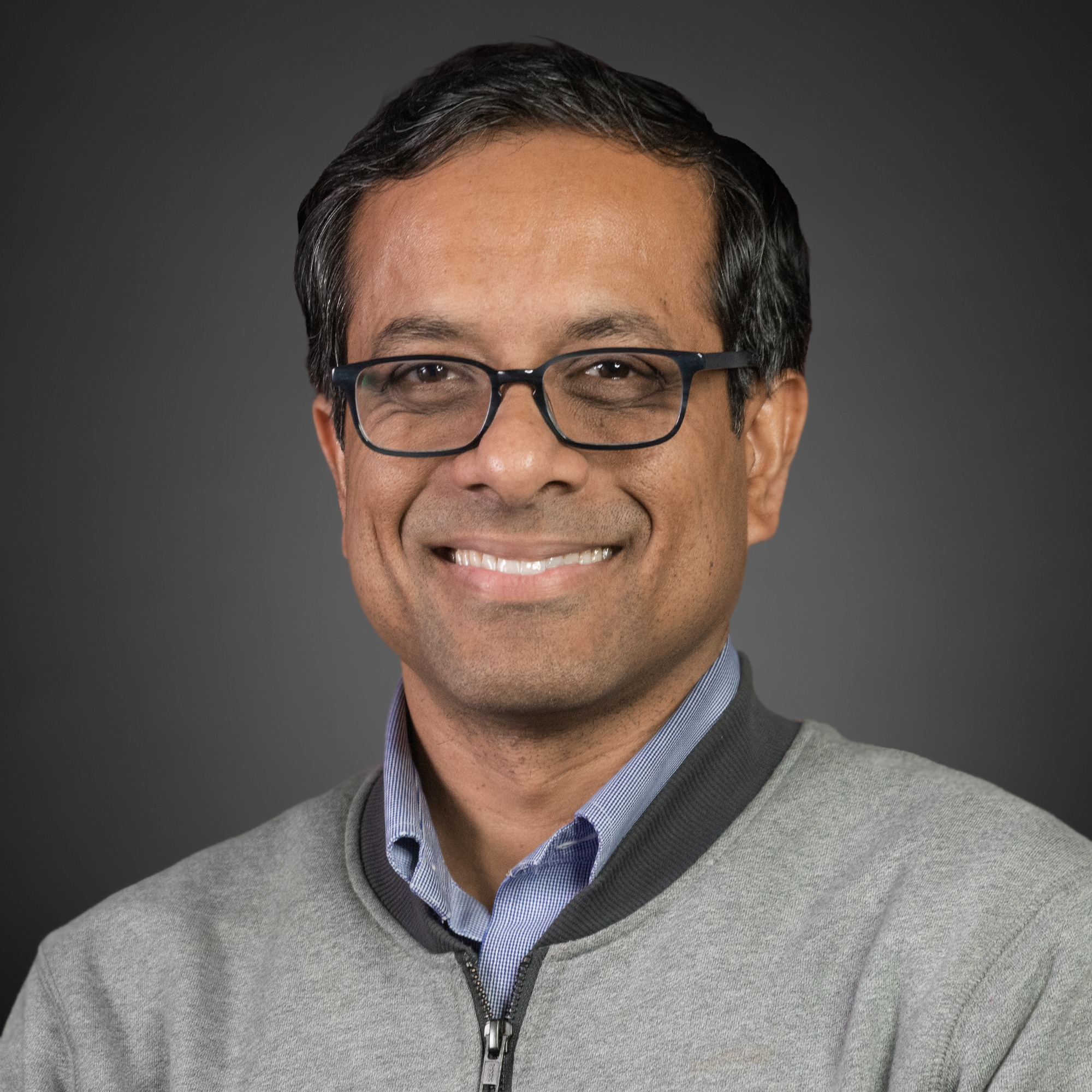
Adrish Sannyasi
Rhino FCP, Vice President of Customer Solutions

Holger Roth
NVIDIA, Principal Federated Learning Data Scientist
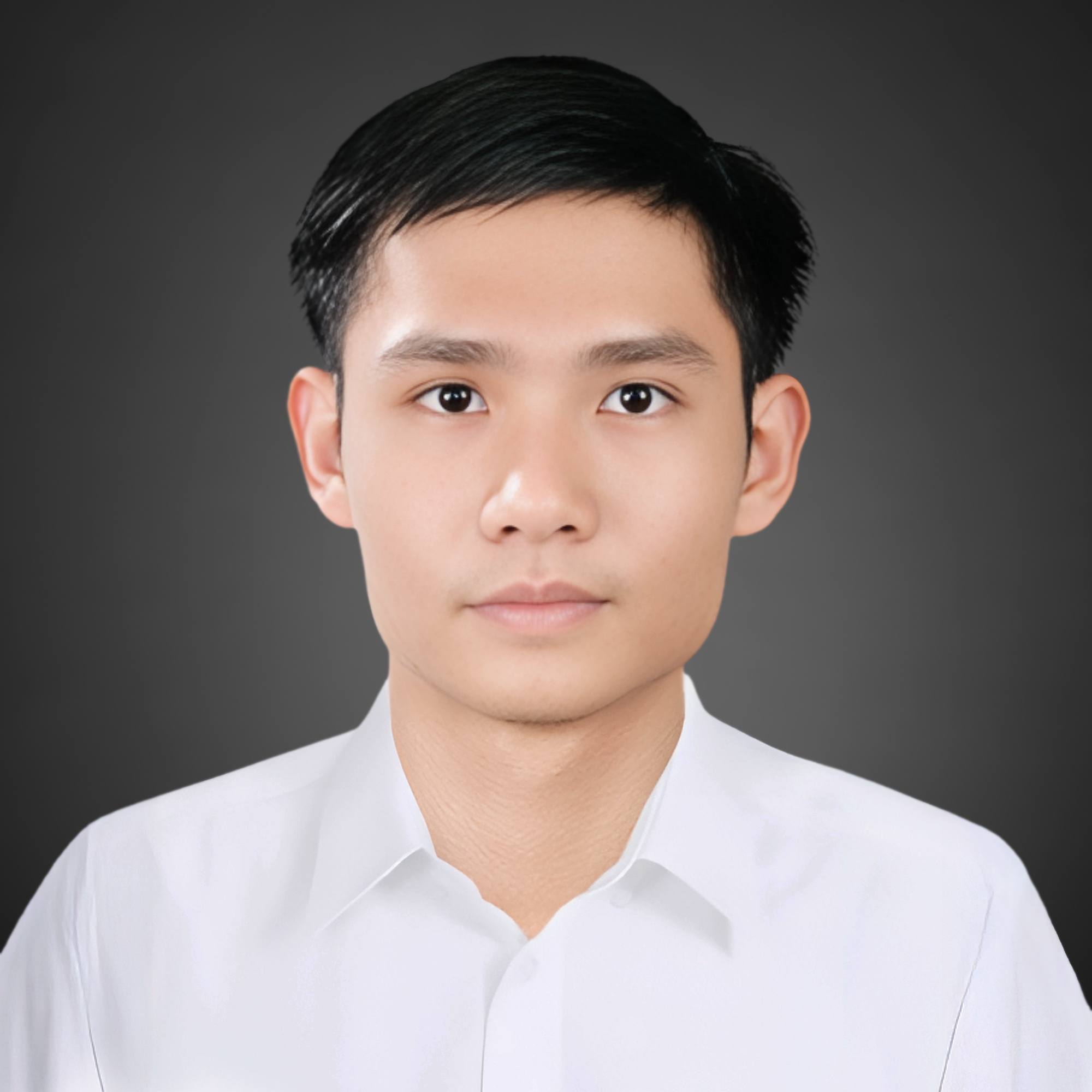
Duy Phuong Nguyen
Iowa State University, Ph.D. student

Johnny Wang
Toyota, Principal Researcher

Nikolas Koutsoubis
USF/Moffitt Cancer Center, Ph.D. Student

Sara Okhuijsen
OASYS NOW, CTO

Christoph Angerer
NVIDIA, Senior Manager, HPC Developer Technology Group

Zülal Tannur
NeuroVision AI Tech, Founder and CEO

Shannon McWeeney
OHSU Knight Cancer Institute, Professor and Chief Data Officer
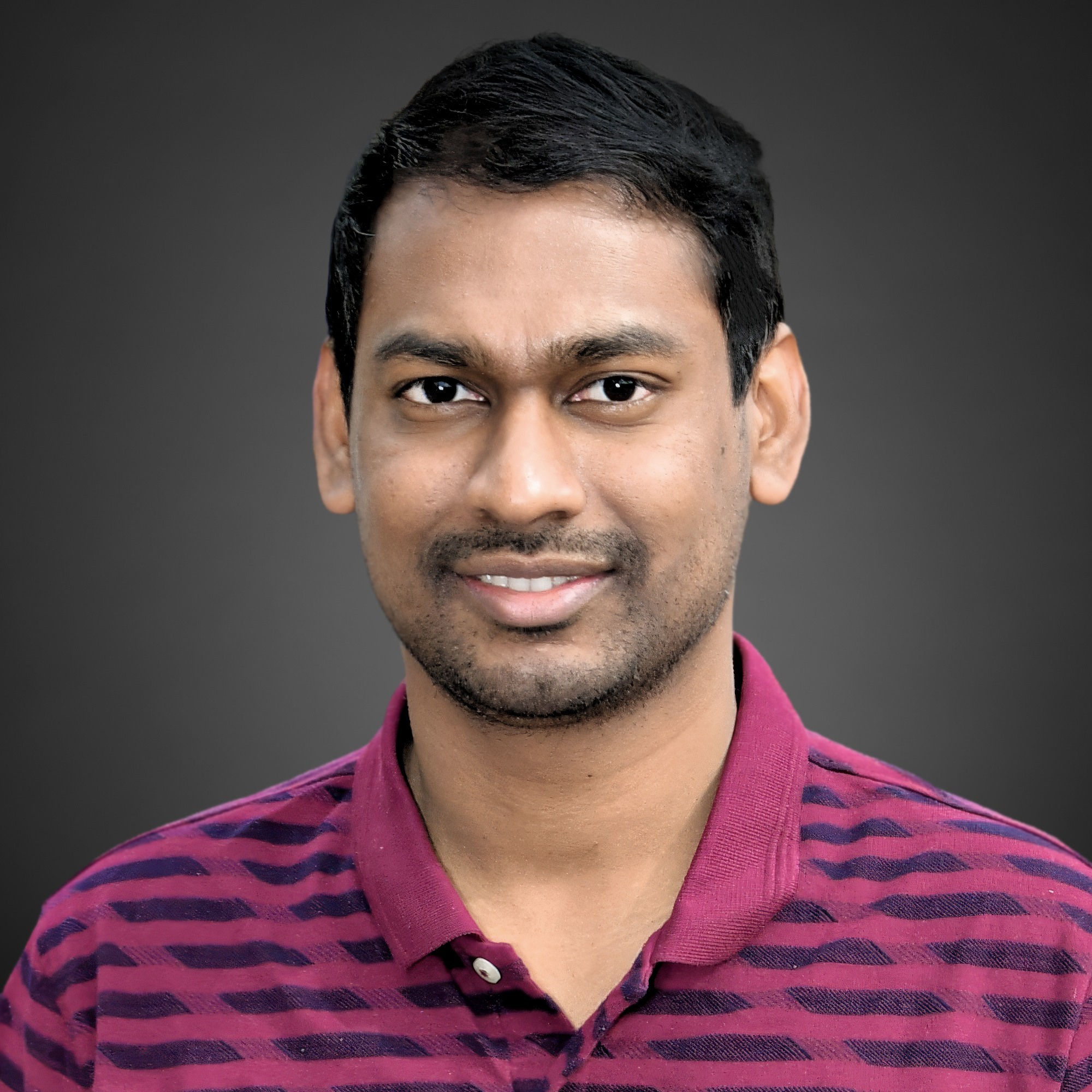
Vishnu Pandi Chellapandi
Cummins Research and Technology, Senior Technical Specialist

Max Carlson
Sandia National Labs, Postdoc data scientist

Chris Siefert
Sandia National Labs, Research Scientist

Gaurav Tripathi
Innoplexus (Partex), Group CTO

Po-Chun Liao, MSc
Ministry of Health and Welfare (MOHW), Taiwan, Chief Engineer, Industrial Technology Research Institute (ITRI) and Chief Engineer for Federated Learning